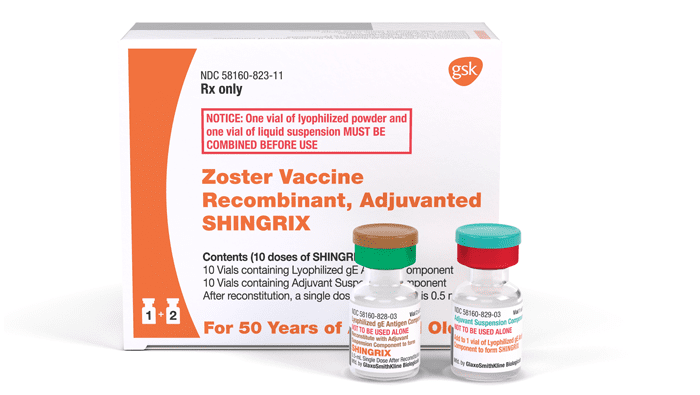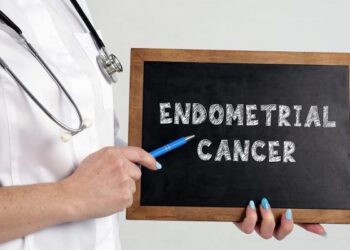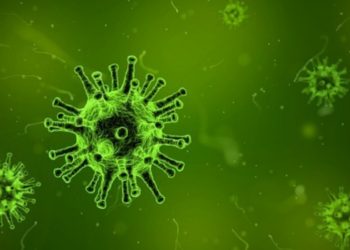GlaxoSmithKline plc announced that new data from a Phase III clinical study supports the safety and efficacy of Shingrix (Zoster Vaccine Recombinant, Adjuvanted) in preventing shingles (herpes zoster) when given to adults 18 years and above shortly after undergoing autologous haematopoietic stem cell transplant (auHSCT). Shingrix is a non-live, recombinant adjuvanted subunit vaccine given intramuscularly in two doses.
Issued: London UK
The ZOE-HSCT study succeeded in its primary objective by demonstrating an efficacy of 68.17% [95%CI: 55.56 – 77.53] against shingles in subjects above 18 years of age after receiving an autologous haematopoietic stem cell transplant. In subjects aged 50 and above, the efficacy was similar, 67.34% [95% CI: 52.60 – 77.89]. The vaccine reduced overall complications linked to shingles episodes by 77.76% [95% CI: 19.05% – 95.93%]. Vaccine efficacy for the prevention of post-herpetic neuralgia, a form of chronic nerve pain and the most common complication associated with shingles, was 89.27% [95% CI: 22.54–99.76]. No safety issues related to the vaccine were detected during the study.
“The immune systems of these stem cell transplant recipients is substantially weakened compared to the general older adult populations studied in other Shingrix efficacy trials,” Emmanuel Hanon, Senior Vice President and Head of Vaccines R&D for GSK said. “This puts them at much higher risk for viral diseases like shingles and, at the same time, makes developing an effective vaccine to help protect them more challenging.”
“Today’s results, demonstrating the vaccine’s ability to help prevent shingles and its complications with just two doses, may provide a much-needed benefit to these patients considering the high incidence and burden of disease they face,” he said.
Shingrix is the first shingles vaccine to combine a non-live antigen, to trigger a targeted immune response, with a specifically designed adjuvant to generate a strong and sustained immune response.
GSK is evaluating these results together with those of other Phase III studies in immune-compromised patient populations. All these data will be shared and discussed with regulatory as well as public health agencies with the objective of best informing health care providers on the use of Shingrix in those patients with greatest medical need.
Shingrix is now approved in Canada and US for the prevention of herpes zoster in adults aged 50 years and above. Regulatory reviews are currently underway in the European Union, Australia and Japan.
About the ZOE-HSCT Study
ZOE-HSCT was a Phase III clinical study to evaluate the efficacy, safety and immunogenicity of a two-dose course of Shingrix for prevention of shingles (herpes zoster) when given to adults 18 years and above with the first dose administered 50-70 days after they had undergone autologous haematopoietic stem cell transplant (auHSCT). Study participants were randomized 1:1 to receive either Shingrix or placebo.
The study started in July 2012 and enrolled 1846 subjects in 28 countries worldwide spanning the North and South America, Europe, Africa, Asia and Oceania.
The safety profile of the vaccine was found to be clinically acceptable in this study. Overall, the proportion of severe adverse events (SAEs), fatal SAEs, potential immune-mediated diseases (pIMDs) and relapses (of the underlying disease) was similar between groups. Observations regarding reactogenicity were in line with the observations in previous studies.
This is the first time that Shingrix efficacy has been evaluated in immune-compromised patients such as those who have received auHSCT and who are at higher risk of developing shingles and its complications. These data complement the available efficacy results from ZOE-50 and ZOE-70 generated in adults aged 50 years and older.
Previously the only available shingles vaccine was live attenuated and therefore contra-indicated for those with weakened immunity. Developing an effective vaccine for these patients was an area of unmet medical need.
About auHSCT
Hematopoietic stem cells consistently replicate and ensure the production of new blood cells. They are located in the red bone marrow which is contained in the core of most bones.
Hematopoietic stem cell transplantation (HSCT) in adults is most commonly performed as part of the treatment for blood cancer. It requires the extraction of haematopoietic stem cells, usually collected from the bone marrow or blood, to be thereafter transfused into the patients’ bloodstream where they induce normal blood cell production. The transplant is called ‘autologous’ when the patient’s own cells are used.
In preparation for the transplant, the patients are treated with high-dose chemotherapy, with or without radiotherapy, with the intention of eradicating the patient’s malignant cell population at the cost of partial or complete bone marrow ablation (destruction of patient’s bone marrow’s ability to grow new blood cells).
For this reason, since the recipient’s cellular immune system is usually destroyed by the radiation or chemotherapy before transplantation, HSCT recipients are at high risk from viral infections like shingles, and its complications.[i]
Over 11,000 people in the US undergo auHSCT each year.[ii]
About Shingles
Shingles is caused by the reactivation of the varicella zoster virus (VZV), the same virus that causes chickenpox.[iii] Nearly all adults have the VZV dormant in their nervous system, which can reactivate with advancing age[iv] or when a person is immune compromised due to certain diseases (such as cancer or HIV) or is receiving immune-suppressive treatments (such as chemotherapy).
Shingles typically presents as a painful, itchy rash that develops on one side of the body and can last for two to four weeks. The pain associated with shingles is often described as burning, shooting or stabbing.[v] [vi]Even once the rash is gone, a person can experience postherpetic neuralgia (PHN), pain lasting from at least three months up to several years. PHN is the most common complication of shingles, occurring in 10 to 18 percent of all shingles cases.[vii]
There are an estimated one million cases of shingles in the United States each year.[viii] More than 99 percent of those over 50 years old are infected with VZV, and one in three Americans will develop shingles in their lifetime.
About Shingrix
Shingrix is a non-live, recombinant adjuvanted subunit vaccine approved in the United States and Canada to help prevent shingles (herpes zoster) in people aged 50 years or older. Shingrix is not contraindicated in immune-compromised people in this age population.
It combines an antigen, glycoprotein E, and an adjuvant system, AS01B, intended to generate a strong and long-lasting immune response that can help overcome the decline in immunity as people age as well as weakened immunity due to disease or immune-suppressive treatments.[ix]



















